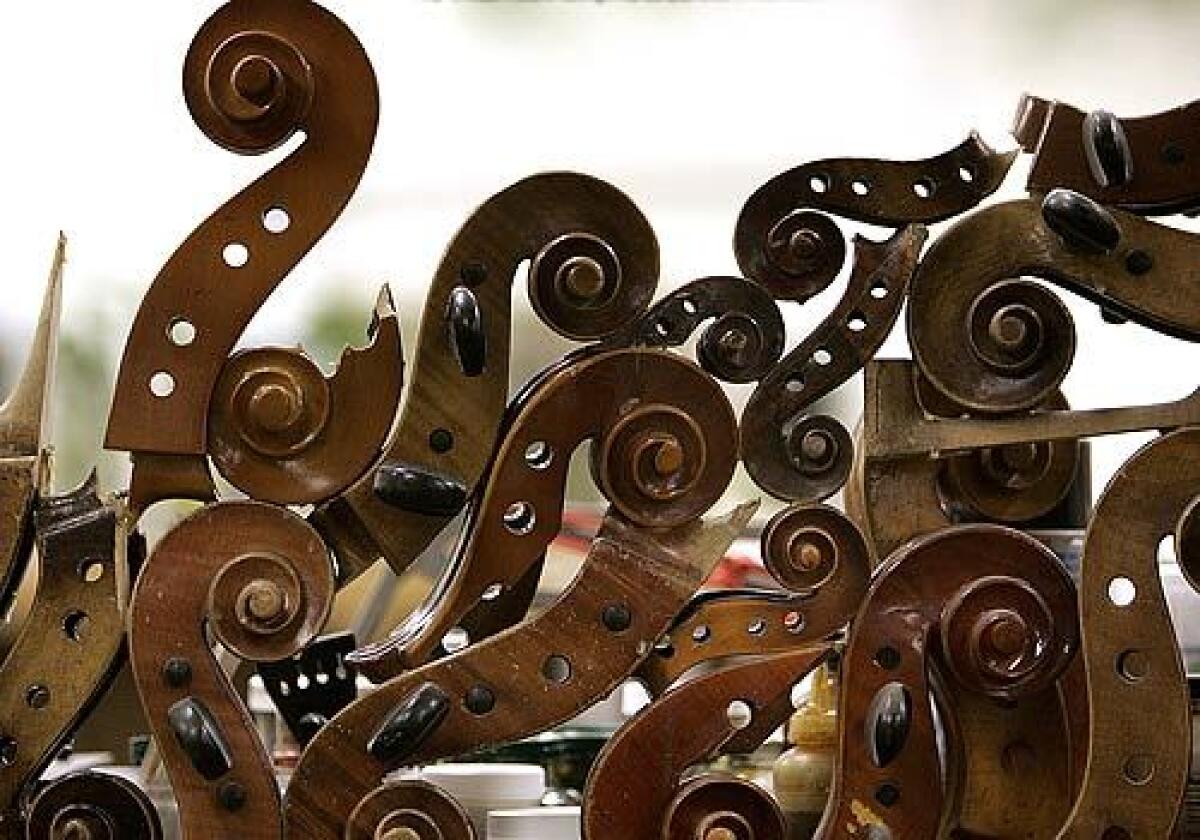Op-Ed: Before the pandemic struck, I was set to perform with my string quartet in a church’s crypt

When the pandemic hit, my fiance, my cello and I flew back to L.A. to be with family, while the other members of my string quartet headed elsewhere. Our violist stayed in New York City with her husband, one of the violinists went home to Korea where they have COVID-19 tests and masks and plenty of hand sanitizer, and our other violinist stayed in Philadelphia with her dog and her partner. We had a Zoom meeting with our mentor, composer Reiko Fueting, who told us that the world would never be the same, but he assured us that we would keep growing.
For nearly a year, we’d been working on a piece my chamber group, Quartet121, has wanted to perform for years. It’s by Austrian composer Georg Friedrich Haas, is 45 minutes long and takes place in complete darkness so that the sounds of the piece completely take over. It’s otherworldly.
We planned to perform it in March in New York City — where we’re based — in the crypt of a church that only fits 50. We’d sought advice from groups who had played it in the past and received two grants to make the performance possible. But the coronavirus caused us to postpone indefinitely. All of the work we’d done, all of the preparation and planning, put on hold.
In the relatively tiny world that is contemporary classical music, small chamber groups dedicate themselves to playing the music of living composers and working with them to create new pieces of music. Many ensembles hold a “call for scores,” asking composers to submit works written for the group’s instrumentation. The ensemble eventually chooses one composer’s work to perform. We moved our call for scores from May to mid-April, figuring we’d have a captive audience. We have already received more than 85 submissions by composers from all over the world.
At the end of the application we ask the composers whether there is anything else they would like us to know. Their responses made me tear up as I reflected on how much I miss my community and hope for its continued strength. Many thanked us for making the submission fee “pay as you can,” and some shared their stories of hardship and struggle. Some responses were as simple as “Appreciate you!” with a smiley face or “Thank you for what you are doing for new music!!!!”
An Iranian composer wrote: You and we “are putting a brick … over the great wall of the music history” and we will keep building this wall “for the future of the humankind.” That’s when the tears really started flowing.
It is so easy to feel alone right now as a human and as a musician. Music means people coming together to create something thoughtful that pushes us to listen, to feel, to grow. Even though I cannot play with my quartet, the response to our call for scores makes me confident new music will thrive in the uncertain days and years ahead.
The quartet members joke that contemporary music will become wildly popular post-pandemic since our audiences almost always have fewer than 40 people. With so much changing, perhaps this experience will inspire us to see things differently, to hear things differently, to be open to the unusual sounds and textures that are so present in the music I love.
Thea Mesirow is the cellist and co-founder of Quartet121.
More to Read
A cure for the common opinion
Get thought-provoking perspectives with our weekly newsletter.
You may occasionally receive promotional content from the Los Angeles Times.










